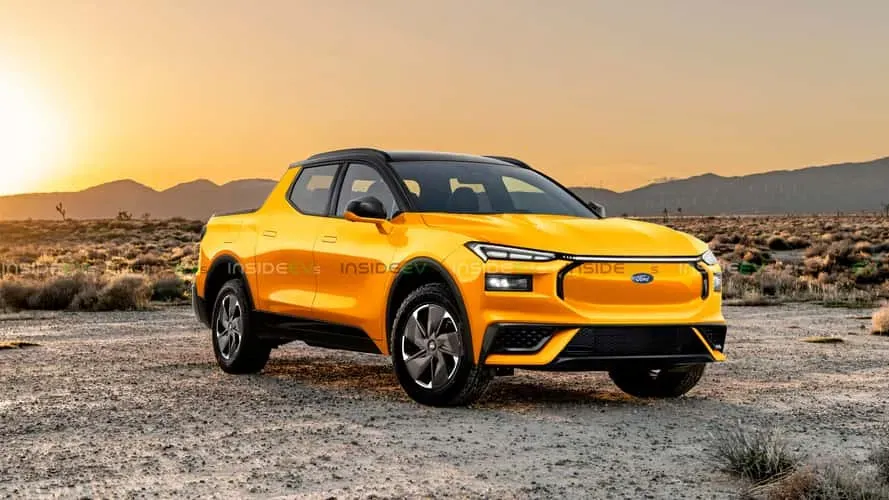Ford affordable EVs are moving from concept to concrete expansion after a Monday announcement of a $2 billion investment in the Louisville EV plant to roll out more affordable electric vehicles. The plan pairs with a separate $3 billion battery park in Michigan to support a midsize, four-door electric pickup 2027. Together the facilities will bolster US-made LFP batteries for the new lineup and anchor Ford’s Universal EV Program. Ford expects the project to create or secure thousands of jobs and strengthen U.S. manufacturing capacity at the Louisville site. As policy settings shift and technology evolves, the company says it will pursue affordability without sacrificing design, space, or driving enjoyment.
Viewed through the lens of low-cost electric cars and domestic manufacturing, the Louisville manufacturing site signals a broader shift toward accessible mobility. Analysts describe the initiative as a Model T moment for the modern era, seeking to balance price, performance, and American job growth within a crowded EV landscape. The push aligns with US-based battery supply goals and reinforces a Universal EV Program ethos aimed at value, safety, and reliability. By framing the strategy around affordability and homegrown production, Ford aims to broaden access to the electric pickup 2027 and related models for a wider range of buyers. In short, the plan points to a multi-site effort to scale affordable electric vehicles, supported by a robust battery ecosystem and favorable policy dynamics.
Louisville EV Plant Spurs Ford’s Affordable Electric Vehicles Initiative
Ford announced a $2 billion investment at the Louisville, Kentucky assembly plant to accelerate the rollout of more affordable electric vehicles. This move builds on a separate $3 billion commitment for a battery park in Michigan, creating a national footprint geared toward higher-volume EV production and a stronger U.S. manufacturing base.
The plan centers on expanding the lineup of affordable electric vehicles (EVs) produced in American plants, with design, innovation, space, and cost-of-ownership considerations all prioritized to delight customers while supporting domestic jobs and supply chains.
Louisville EV Plant and Michigan Battery Park: A Dual-Plant Strategy for US EV Growth
Together, the Louisville facility and Michigan battery park are designed to create or secure nearly 4,000 jobs, underscoring Ford’s commitment to American workers and regional economic growth. The two sites aim to synchronize vehicle assembly with battery production to streamline the path from parts to finished EVs.
This dual-plant approach supports Ford’s strategy to scale affordable electric vehicles across the U.S., leveraging existing manufacturing strengths and a growing domestic supply chain built around U.S.-made components and localized production.
electric pickup 2027: Ford’s Budget-Friendly Path for US-Made EVs
Ford has signaled the launch of a midsize, four-door electric pickup in 2027, aligning with a broader push to bring affordable EVs to a mass audience. The target is to deliver a vehicle that offers practical range, space, and dependability at an approachable price point.
By tying the electric pickup 2027 window to the Louisville Assembly Plant, Ford outlines a concrete timeline for U.S.-based production that emphasizes domestic manufacturing and near-term availability for customers seeking lower total ownership costs.
US-made LFP Batteries: Ford’s Domestic Battery Strategy
A key element of Ford’s plan is to use lithium iron phosphate (LFP) batteries that will be assembled in the United States, not imported from China. This choice aims to improve supply security, reduce reliance on foreign sourcing, and support the affordability goals of the Universal EV Program.
Locating LFP battery production domestically also reinforces the long-term strategy to maintain quality control, optimize logistics, and shorten the time from battery development to vehicle delivery for affordable electric vehicles.
Universal EV Program: Ford’s Low-Cost EV Rollout Plan
Ford’s Universal EV Program centers on low-cost EVs with a programmatic focus on accessibility, efficiency, and a simplified ownership experience. The rollout starts with a midsize, four-door electric pickup designed to appeal to a broad set of buyers.
This program emphasizes a domestic supply chain, standardized parts, and scalable production at the Louisville Assembly Plant, reinforcing Ford’s commitment to affordable electric vehicles built for American drivers.
Ford affordable EVs: Pricing, Production and Domestic Manufacturing
The company has publicly discussed a starting price around $30,000 for the new EV truck, signaling an effort to mirror the historic affordability of Model T-era transportation in today’s market.
The pricing strategy is intertwined with U.S.-based production and the use of US-made LFP batteries, aiming to reduce cost-to-own and attract a broader segment of customers while creating jobs at the Louisville plant and beyond.
Jobs and Workforce Shifts at the Louisville Assembly Plant
Ford indicated the Louisville plant will secure about 2,200 jobs as part of the EV retooling, while the broader rollout and the Universal EV Program are expected to contribute to thousands of additional roles across related facilities.
Officials note that the shift toward EV production may lead to some changes in the current workforce, including adjustments as manufacturing transitions, but emphasize overall job creation and long-term stability in U.S. manufacturing jobs tied to EVs.
Global Competition and U.S. EV Policy: Ford’s Navigation of Tax Credits and Trade
The announcement arrives as Ford faces global competition from Chinese automakers and startups, making a radical, domestic-focused approach essential in a changing policy landscape.
Ford also notes shifts in EV policy, including changes to tax credits, which underscores the importance of maintaining a strong U.S.-based supply chain and domestic production lines to support affordable electric vehicles.
Design, Innovation, and Cost of Ownership in Ford’s EV Plans
Ford frames the investment as a way to deliver a vehicle that balances design, innovation, space, and cost of ownership, all while leveraging American workers and a retooled Louisville Assembly Plant.
The focus on reducing ownership costs aligns with the Universal EV Program’s mission to produce affordable electric vehicles without sacrificing performance, safety, or durability, helped by domestic battery production and localized manufacturing.
Sustainability and the EV Supply Chain: Emphasis on Domestic Production
By producing EVs and batteries in the United States, Ford aims to strengthen resilience in the supply chain, shorten logistics paths, and support regional economic growth through new and secured jobs.
The emphasis on U.S.-made components, including LFP batteries, complements Ford’s broader strategy of domestically oriented manufacturing to meet increased demand for affordable electric vehicles.
Future Outlook: Ford’s EV Ambition and the US Automotive Landscape
Ford’s Louisville and Michigan investments reflect a broader bet on the U.S. automotive industry’s future, where affordable electric vehicles and domestic battery production help maintain competitiveness.
As Ford scales its Universal EV Program and expands the lineup for 2027 and beyond, the company aims to shape a sustainable, U.S.-based EV ecosystem that balances jobs, affordability, and technological progress.
Frequently Asked Questions
What is Ford’s plan for affordable EVs at the Louisville EV plant and the electric pickup 2027?
Ford announced a $2 billion investment to expand affordable electric vehicles at the Louisville EV plant, including a midsize, four‑door electric pickup planned for 2027 under the Universal EV Program, using US‑made LFP batteries.
What is the Universal EV Program and how does it relate to Ford affordable EVs?
The Universal EV Program is Ford’s initiative to deliver low‑cost EVs, starting with the Louisville EV plant’s 2027 electric pickup, featuring US‑made LFP batteries.
Will the electric pickup 2027 use US-made LFP batteries?
Yes. Ford said lithium iron phosphate (LFP) batteries for the new family of EVs will be assembled in the U.S. and not imported from China.
How many jobs are expected from the Louisville EV plant investment for Ford affordable EVs?
Ford says the combined facilities will create or secure nearly 4,000 jobs; at Louisville, about 2,200 jobs will be secured, and after retooling, about 600 fewer workers are expected.
What is the starting price for the new electric pickup under Ford’s affordable EVs plan?
The starting price is about $30,000, aiming for affordability and parity with the Model T when inflation is considered.
Where will the US-made LFP batteries for Ford affordable EVs be produced?
The batteries will be assembled in the U.S., part of Ford’s move to use US-made LFP batteries rather than imports from China.
How does Ford address competition and policy changes in its affordable EVs strategy?
Ford describes its affordable EVs as a radical, cost‑focused approach to stay competitive amid new technology and global competition, while noting policy shifts such as changes to EV tax credits after Sept 30.
What other investment complements the Louisville plant in Ford’s affordable EVs push?
In addition to Louisville, Ford is investing about $3 billion for a battery park in Michigan to support the broader US‑made battery supply for affordable electric vehicles.
| Aspect | Details |
|---|---|
| Investment | Ford will invest $2 billion in a Louisville, KY assembly plant to roll out more affordable EVs; this is in addition to $3 billion planned for a Michigan battery park. |
| Vehicle and timeline | Plan to produce a midsize, four-door electric pickup at Louisville Assembly Plant; launch slated for 2027; part of the Universal EV Program focused on low-cost EVs. |
| Job impact (overall) | Together the facilities will create or secure nearly 4,000 new jobs. |
| Job impact (Louisville) | Louisville plant will secure about 2,200 jobs; after retooling for EV production, about 600 fewer workers than the current configuration. The plant employed more than 3,000 as of April 2024. |
| Battery | Lithium iron phosphate (LFP) batteries for the new family of EVs will be assembled in the U.S. and not imported from China. |
| Pricing | Starting price of the new EV truck is $30,000, roughly the same as the Model T when adjusted for inflation. |
| Program context | The new Universal EV Program centers around low-cost EVs and will start with the midsize, four-door electric pickup. |
| Industry context | Executives noted the automotive industry is at a crossroads due to new tech and competition; Chinese players like BYD and other startups are targeting the auto space. |
| Policy context | Shifting U.S. EV policies under President Trump, including an end to EV tax credits that will take effect after Sept. 30. |
| Notable notes | Farley described the announcement as a radical approach to an affordable vehicle; the launch was teased as the next “Model T moment.” The article also notes a correction: Louisville Assembly Plant will secure about 2,200 jobs. |
| Source notes | Ford noted that the plant’s employment figures and job impacts were updated; CNBC’s Phil LeBeau contributed to the report. |



